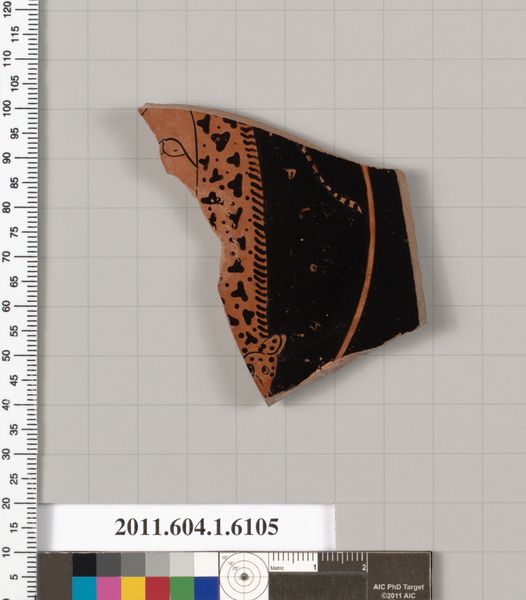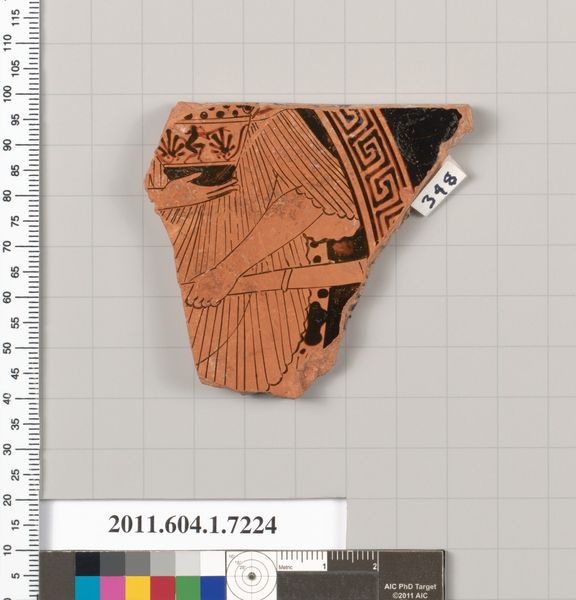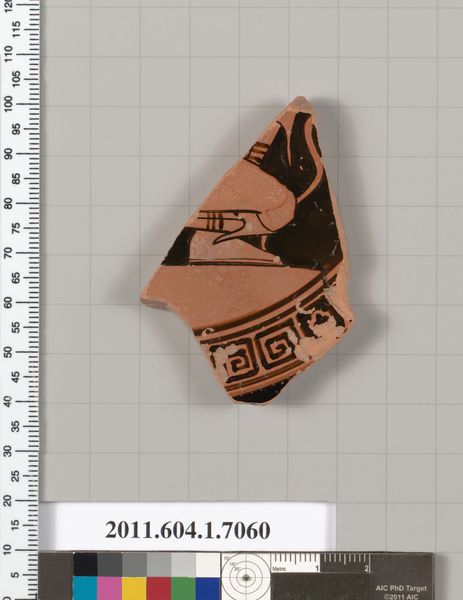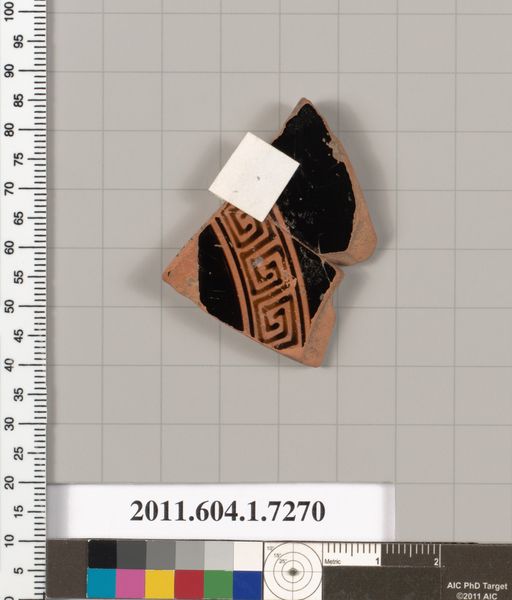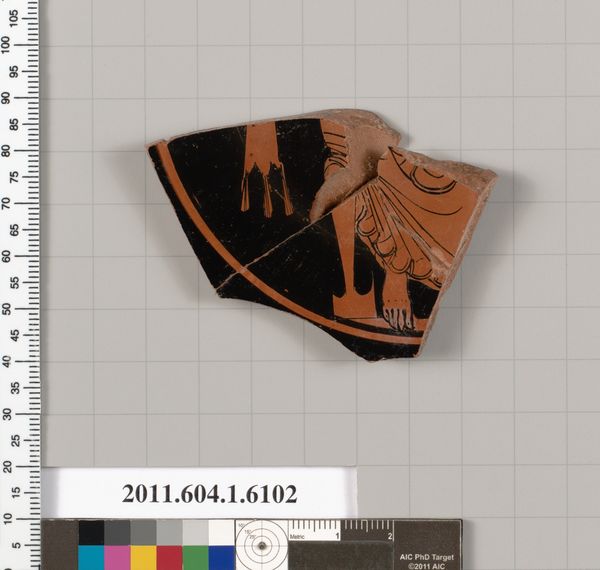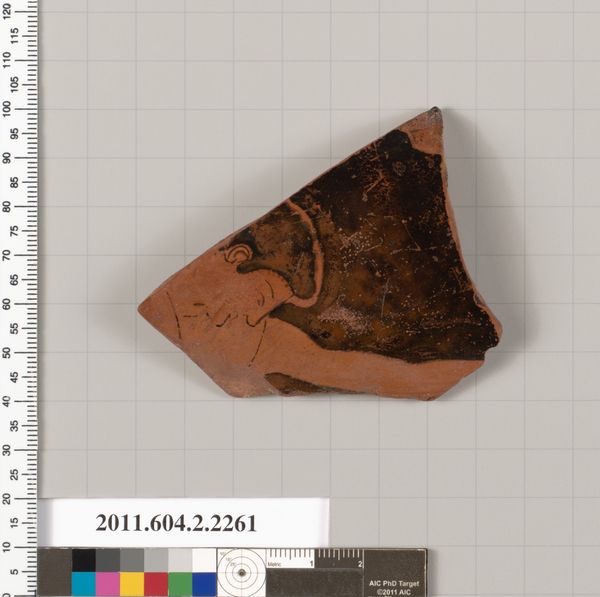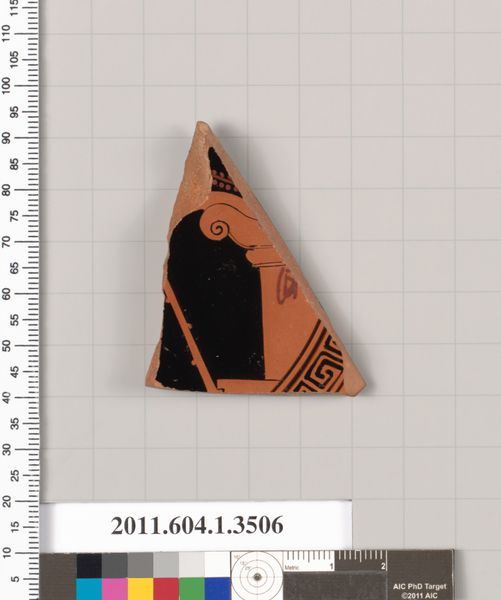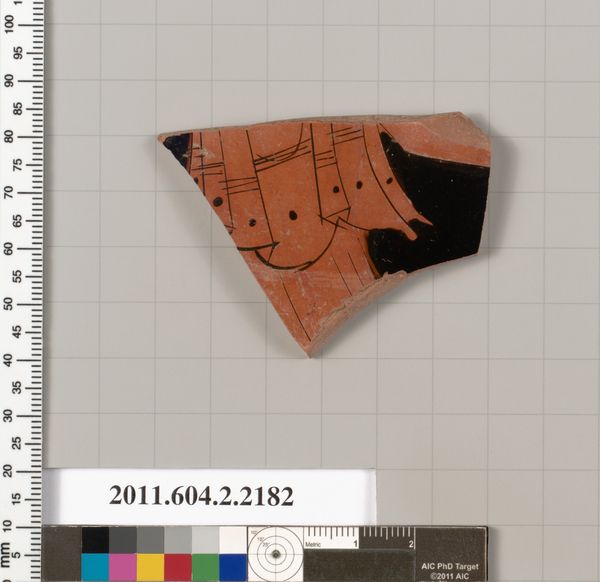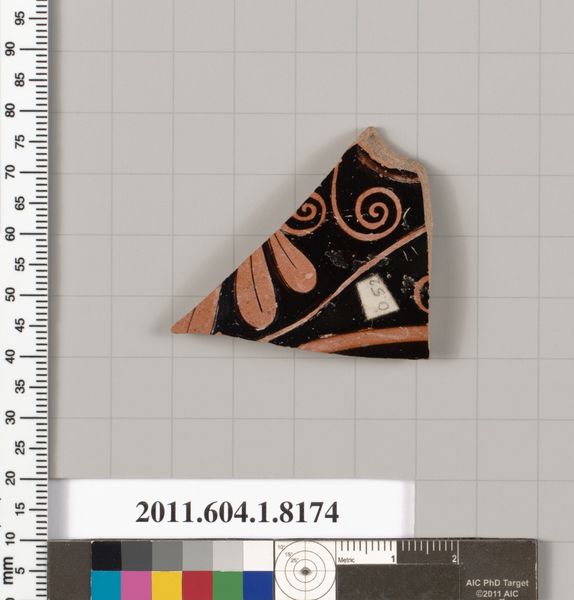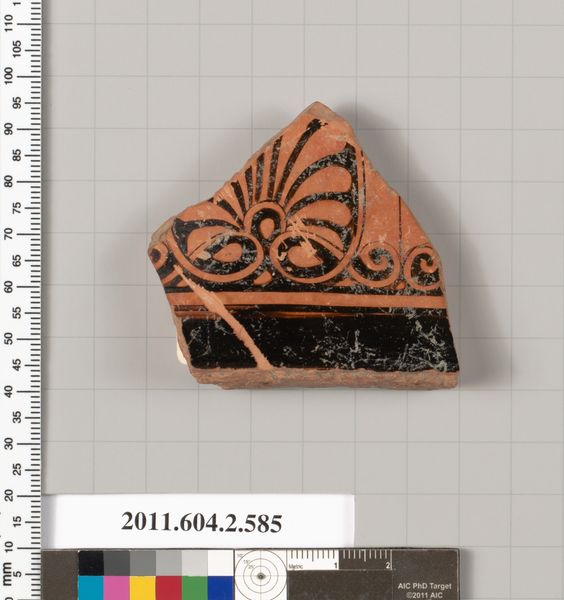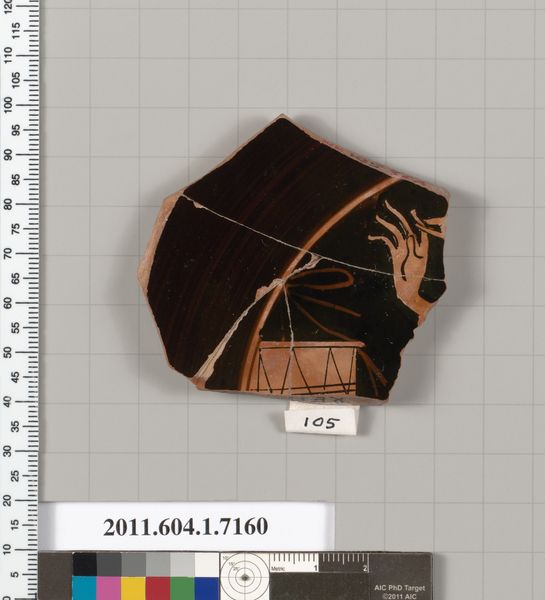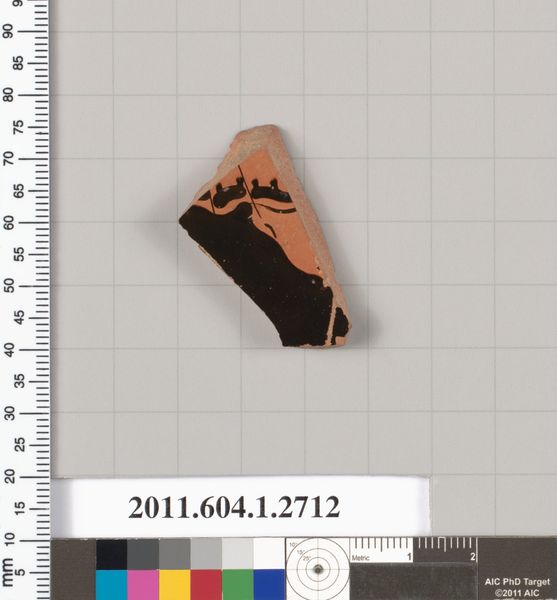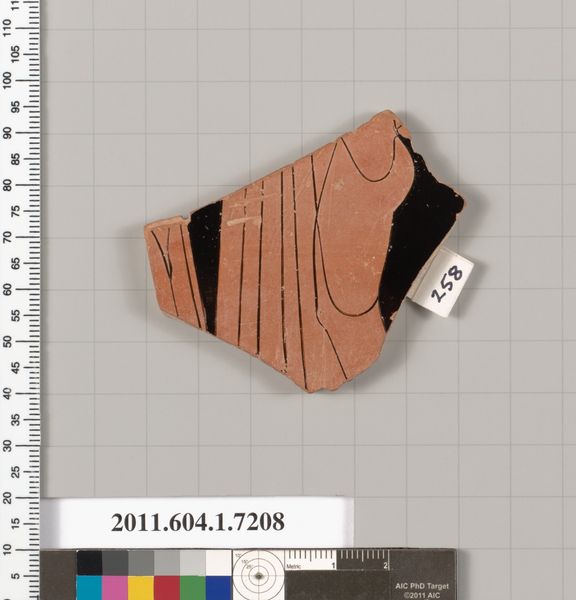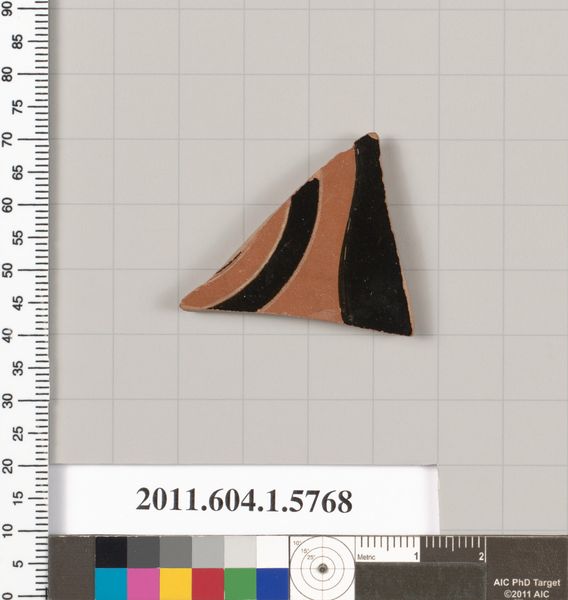
drawing, ceramic
#
portrait
#
drawing
#
greek-and-roman-art
#
ceramic
#
vase
#
figuration
#
ancient-mediterranean
Copyright: Public Domain
Editor: This is a fragment of a terracotta kylix, or drinking cup, from 530 BC, attributed to Makron, and currently held at the Met. Even as just a shard, it possesses a strong sense of dynamic movement. What compositional elements stand out to you in this fragment? Curator: The composition is primarily defined by the stark contrast between the black glaze and the reserved terracotta. Observe how the meander pattern along the rim creates a framing device. The artist uses the negative space, the reddish-terracotta ground, to delineate the figures with precision, giving shape and contour. Do you notice how this method affects our perception of depth and form? Editor: It's interesting, the black almost feels like a void, making the figures push forward. The lines seem so economical, each stroke essential. It is fascinating, though – what appears like a spontaneous depiction is anything but, as the control over materials has to be utterly painstaking. Curator: Precisely. Focus on the curvature implied by the fragment’s edge; this directs our eyes along the implied form of the complete vessel, enhancing the experience. One might also investigate the correlation between shape, ornamentation and depiction on these vessels and propose their effect on the viewer's haptic and tactile experience. Editor: It really brings out the essence of the depicted characters by reducing them to their purest, most archetypal form! Curator: Indeed. Analyzing solely these formal elements allows us to perceive and understand its fundamental artistic essence. Editor: Seeing how much can be conveyed with such disciplined restraint gives me so much to think about. Curator: And it reminds us of the power of formal analysis to unlock a work’s inherent artistic qualities.
Comments
No comments
Be the first to comment and join the conversation on the ultimate creative platform.
